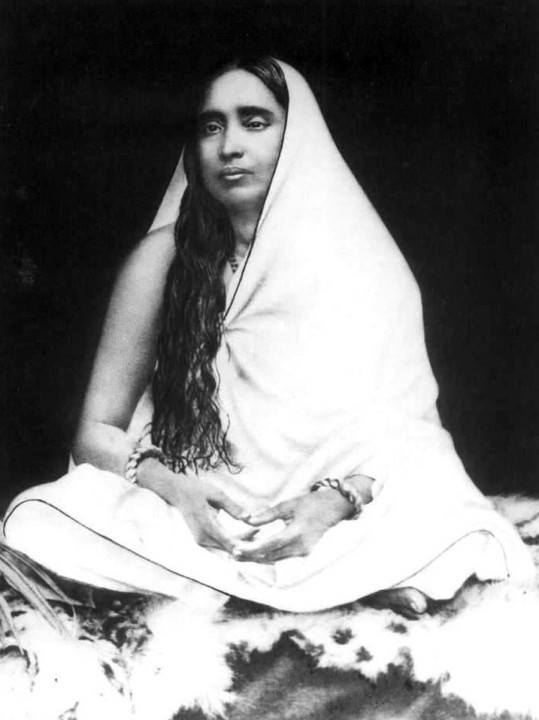The views expressed in our content reflect individual perspectives and do not represent the authoritative views of the Baha'i Faith.
Different religious systems throughout the world have taken widely varying positions on the role of women. For example, Hinduism and Confucianism are religious systems whose teachings and stories emphasize concepts of social hierarchy. In these religions, women are often in explicitly subordinate roles, spiritually and practically. In Christianity, Islam, and Buddhism, women and men are believed to have spiritual equality. Despite this spiritual equality, in Christian, Islamic, and Buddhist societies, patriarchal social norms frequently meant that women experienced practical inequality. – Framing Essay, Women in World History
In the realm of most religions, women historically played secondary roles, and others were often overlooked by historians. Generally, history books and, indeed, religious texts, have been woefully neglectful of the contributions of women. Their stories have not received their full due, until the Baha’i teachings emerged, with their strong emphasis on the equality of the sexes:
…history furnishes evidence that during the past centuries there have been great women as well as great men. Though their stories are few and many are woefully incomplete, still they made great contributions to the societies of their day, and their legacies endure. – Abdu’l-Baha, The Promulgation of Universal Peace, p. 283.
In recent times, thanks to the establishment of Women’s History Month, we take time in the month of March to honor intrepid women, past and present, who helped shape our world, defying tradition to help institute necessary changes in society. We learn of women who fought for many causes: slavery, women’s rights, health and education, and who made great inroads in the sciences and arts. But seldom do we spend much time talking about women of faith. Yes, we have literature and dramatic presentations of Joan of Arc, and we all know and honor Mother Teresa, no matter what our religion, but what of the many other women of whom we know little or nothing? Even in a secular society, these women have lessons to teach us. Here are two women of Faith with whom you may not be familiar, who lived according to the Baha’i teachings of love, kindness and service to others:
Sarada Devi, reverently referred to as Holy Mother

Holy Mother Sarada Devi
From early childhood, service to others was Sarada Devi’s main goal. During a severe famine in 1864, she, along with her family, devoted themselves to feeding the hungry. Betrothed to Ramakrishna at the age of five, she wed while in her teens. Sarada Devi wielded great influence in the growth of India’s Ramakrishna movement. They lived a monastic life, she remaining in the background, cooking and serving Ramakrishna and his followers, but she found time to spread the faith to other women. For 34 years after his death, she became the spiritual guide of their followers. She fed the poor, both literally and figuratively. Try to picture Sarada Devi speaking these words to you:
Ramakrisha taught me to read, to write, trained me in the holy ways—though he was often criticized—why, my own nephew begrudged me learning: Snatching from my hands a school boy’s primer, scorning, scolding me that it would only lead to women reading novels and dramas! But I longed to know, to understand how to be as pure as moonlight, when there are dark spots even on the moon… In the light of his shadow, I studied, practiced meditation, renunciation, and I too, attained the higher planes… We served each other well. – Terre Ouwehand, Voices from the Well 2, p. 65.
…from its uncountable corners, Calcutta swells grotesquely with the distended bulge of famine, and its soul slithers in ignorance . . .the crippled limb, and lame in spirit press me—with adoration, desperation burning like coals in the smooth brown bowls of their foreheads—Soothing their heated brows, their black flashing eyes, with a mother’s simple stroke, I feed their groaning stomachs with food I have begged—they cluster and fold about me as if I were a spreading, shading Banyan tree, their only refuge. When the stomach is quiet only then can the spirit listen. The teacher utters the mantra into the ear but God whispers the meaning to the soul. – Ibid, p. 66
Fatimah, the daughter of the Prophet Muhammad
Muhammad’s youngest daughter, still venerated and loved by all Muslims, lived her life devoted to her father and his Faith. She supported him, cared for him and gave him descendants, known throughout the Muslim world as siyyids:
The Prophet taught Fatima divine knowledge and endowed her with special intellectual brilliance, so much so that she realized the true meaning of faith, piety, and the reality of Islam….
The Holy Prophet said: “Whoever injures (bodily or otherwise) Fatima, he injures me; and whoever injures me injures Allah; and whoever injures Allah practices unbelief. O Fatima! If your wrath is incurred, it incurs the wrath of Allah; and if you are pleased, it makes Allah pleased, too.”…
Her generosity and compassion for the poor was such that no destitute or beggar ever returned from her door empty-handed. She worked, dressed, ate and lived very simply. She was very generous; and none who came to her door ever went away empty handed. Many times she gave away all the food she had had, staying without any food at all. As a daughter, she loved her parents so much that she won their love and regard to such an extent that the Holy Prophet used to stand up whenever she came to him. – Al-Islam.org, Fatima, the Daughter of Muhammad, a Brief Biography.
















Comments
Sign in or create an account
Continue with Googleor